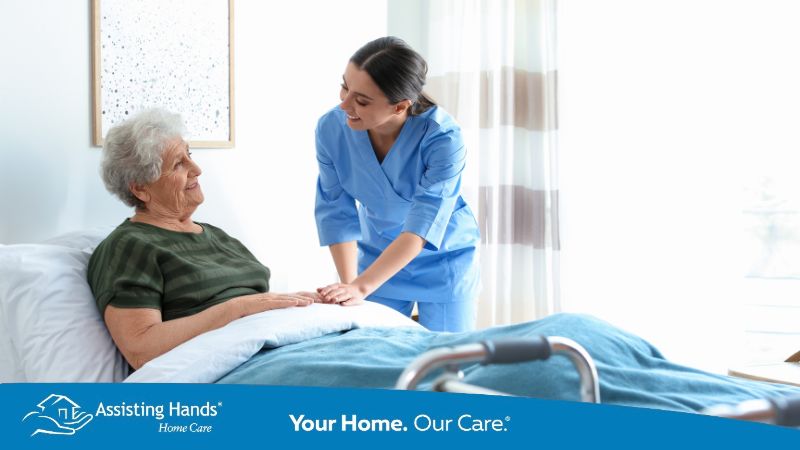
Undergoing a kidney transplant is life-changing—but recovery doesn’t end when the surgery does. For many patients, having the right post-operative support can make the difference between a smooth recovery and a prolonged one. One of the most common questions caregivers and patients ask is:
“How long do I need a caregiver after a kidney transplant?”
This blog explores the recovery journey from a practical and emotional perspective—what you should expect, what to plan for, and how professional home care services can help ease the transition from hospital to home.
Why Post-Transplant Care Matters
Kidney transplants don’t just tax the body—they strain the mind and spirit too. After months or even years of dialysis, waiting lists, and uncertainty, the surgery is only the beginning of the next chapter. Most patients are eager to resume normal life—but the reality is that recovery is gradual, and vulnerability is high in the early weeks.
In this critical period, patients need:
- Physical help with tasks like bathing, dressing, and walking
- Medication monitoring (especially immunosuppressants)
- Support with meals, hydration, and nutrition
- Encouragement and emotional reassurance
- A calm, safe, and infection-controlled home environment
This isn’t just about convenience—it’s about protecting the new kidney and preventing setbacks.
How Long Do You Need a Caregiver After a Kidney Transplant?
Most kidney transplant patients require caregiver support for at least 4 to 8 weeks following the surgery. For older adults, those with underlying health conditions, or patients who live alone, the need for in-home care may extend to 3 months or more.
General Care Timeline:
- Weeks 1–2: Full-Time Care or 24/7 Support
The first two weeks after surgery are the most vulnerable. Patients typically need help with personal care, mobility, medications, transportation, and infection prevention. Around-the-clock support is ideal. - Weeks 3–6: Daily or Part-Time Assistance
As strength returns, patients may still need daily check-ins or help with errands, hygiene, meals, and reminders. A part-time caregiver can ease the transition. - Weeks 7–12: As-Needed Support
Most patients are regaining independence but still benefit from light housekeeping, medication reminders, and accompaniment to checkups.
Keep in mind: recovery isn’t one-size-fits-all. The timeline may shift depending on how well the body responds to the transplant, how complicated the surgery was, and the patient’s preexisting health conditions.
When to Consider Professional In-Home Care
If you’re the spouse, child, or friend of someone who’s had a kidney transplant, it can be difficult to manage their needs while also juggling your own schedule. That’s where Assisting Hands Home Care, Palos Heights can step in. We help with:
- Personal hygiene and dressing
- Medication management
- Meal preparation for post-transplant diets
- Light housekeeping
- Transportation to follow-up appointments
- Companionship and emotional support
Our caregivers are trained to provide compassionate, skilled support during kidney transplant recovery, always adapting care to match the client’s evolving needs.
Trusted Home Care for Kidney Transplant Patients
At Assisting Hands Home Care in Palos Heights, IL, we’ve supported countless families across the South Suburbs through the delicate post-kidney transplant recovery process. We understand how challenging this time can be—and how important it is to have a trusted caregiver by your side.
Whether you or your loved one lives in Palos Heights, Palos Hills, Lockport, or nearby communities, our experienced caregivers are here to provide compassionate, personalized care right at home. From daily support to transitional care, we make recovery safer, smoother, and less overwhelming.
Call us today to schedule your free consultation and discover how our kidney transplant recovery care can help your family heal with confidence.
Common Questions Families Ask After a Kidney Transplant
What’s the biggest risk for seniors during recovery?
Infections and organ rejection remain the top concerns. Seniors’ immune systems are often weaker, and with immunosuppressants, even a mild illness can escalate quickly. Close, attentive care is essential to keep them safe.
How can caregivers assist with medical follow-ups for seniors?
Our Caregivers provide invaluable support—offering transportation to appointments, helping seniors understand and remember medical advice, and assisting with daily routines to follow doctors’ instructions properly.
Is caregiving after transplant covered by insurance for seniors?
Many insurance plans, including Medicare Advantage, may help cover post-transplant care. We assist families in navigating benefits so seniors get the care they deserve without added stress.
What is the recovery time after a kidney transplant for seniors?
Every person’s recovery is different, especially for seniors. From my experience caring for older adults, it usually takes a few weeks to a couple of months for them to start feeling like themselves again after a kidney transplant. Older bodies can take a bit longer to heal, and there might be other health concerns to manage along the way.
